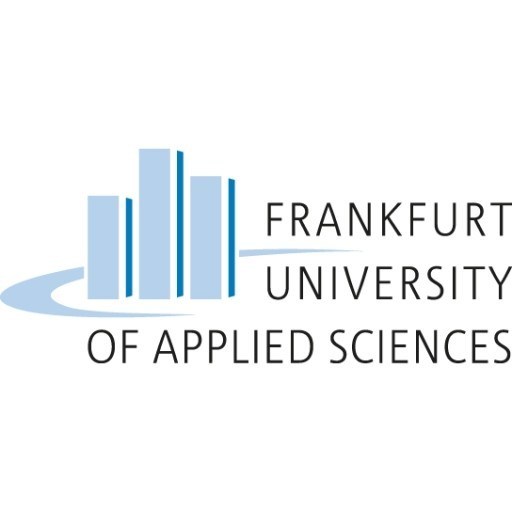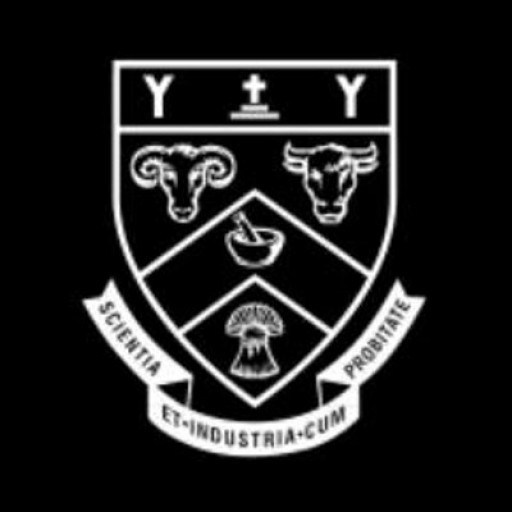The Bachelor's degree program in Aviation and Tourism Management at Frankfurt University of Applied Sciences offers students a comprehensive education tailored to the dynamic aviation and tourism industries. This program combines theoretical knowledge with practical skills, preparing graduates for challenging careers in these global sectors. Throughout the program, students gain insights into key areas such as airline management, airport operations, travel agency and tour operator management, hospitality industry fundamentals, marketing strategies, and sustainable tourism development. Emphasis is placed on understanding the economic, environmental, and social impacts of aviation and tourism, promoting responsible and sustainable industry practices. The curriculum includes modules on logistics, customer service, project management, and digital transformation, equipping students with the capabilities to adapt to technological advances and industry trends. Practical training is integrated through internships and collaboration with industry partners, providing students with valuable real-world experience and networking opportunities. The program also focuses on developing language proficiency and intercultural communication skills vital for working in international settings. Graduates will be well-prepared for roles such as airline managers, airport operations specialists, travel consultants, tourism promoters, and event coordinators. The program fosters innovative thinking, problem-solving abilities, and leadership qualities necessary for advancing careers in aviation and tourism. With state-of-the-art facilities and a commitment to academic excellence, Frankfurt University of Applied Sciences ensures students are equipped with both the theoretical foundations and practical skills needed to succeed in a competitive global environment. Upon completion, graduates receive a recognized bachelor's degree that opens doors to diverse career paths and further academic opportunities within the aviation and tourism sectors.
Educational organisation
International applicants are welcome. In order to make things easier for students based abroad, the programme is organised in two presence blocks with a total of 23 days in semesters one to three. To prepare students for international assignments, this programme is conducted in English.The study concept has as a starting point the individual definition of learning targets regarding knowledge, skills and personal values based on a 360° feedback. Students apply and extend their know-how and skills by using various didactic methods e.g. teamwork, expert lectures, online/offline self-study phases, work practice, role play, presentations, and research papers. Management Mentors will support their personal and leadership development.
This is a part-time programme.
Modules include the following:
First semester:
- Management Competencies I: Introduction to the Study Programme, Academic Methods and Presentation Skills
- Research Methods and Project Management: Project Management, Quantitative Research
- Fundamentals of Tourism Management and Intercultural and Innovation Management
- Elective Aviation: Safety Management Systems: Safety and Security
- Elective Tourism: Strategic Tourism Management I: Strategic Destination Management, Strategic Tour Operation Management
- Strategic Management and Airline Management: Strategic Airline Management, Strategic Management
Second semester:
- Management Competencies I: Rhetorical Skills, Press Management and Media Communications
- Corporate Management I: Strategic Marketing & Sales, Information Systems Management
- Leadership and the Legal and Regulatory Framework: Talent Management, Leadership and Labour Law, Legal and Regulatory Framework of the Aviation and Tourism industry
- Applied Research Project: International Research and Consulting Project in the Aviation and Tourism industry
Third semester:
- Management Competencies II: Work-Life Balance and Networking
- Logistics: Operations Management, Supply Chain Management
- Corporate Management II: Corporate Finance, Management Accounting
- Economic and Environmental Basis: Applied Regional Analysis and Spatial Economics, Sustainability Management in the Aviation and Tourism industry
- Elective Aviation Management: Strategic Air Traffic and Airport Management: Strategic Air Traffic Management, Strategic Airport Management
- Elective Tourism: Strategic Business Travel Management, Strategic Tourism Marketing and E-Business
Fourth semester:
- Management Competencies II: Lobbying and Feedback Seminar
- Master's thesis and colloquium
Study abroad unit(s)
Two modules will be held at the partner universities abroad:Embry-Riddle Aeronautical University, Florida, USA and
University of Huddersfield, UK
Forms of assessment
Written exams, papers, presentationsCourse objectives
The MBA programme "Aviation and Tourism Management" qualifies professionals for challenging and demanding management and leadership positions in the aviation and tourism industry.After successful completion of the study programme, graduates master relevant corporate functions and understand their interdependence and importance for a successful management of a company. They have the ability to develop, manage, and lead projects and inspire confidence in their team to implement new visions and strategies. In particular, they are competent in providing ethical leadership in international and globalised settings, dealing with diverse cultures and implementing national and international strategies in local as well as globalised markets. They are excellent negotiators and communicators and able to take decisions with incomplete or limited information, reflecting on social and ethical responsibilities. They have learnt to think in an analytical and conceptual way, manage their time, and structure their work and the work of their teams in an efficient and effective manner.
Furthermore, they are capable of analysing, defining, and evaluating market segments, international trends, and demands of the aviation and tourism industry. They recognise key success factors and market potentials and can identify, develop, and implement concepts and processes in strategic aviation and tourism management areas. In their decision making process, they consider the legal and regulatory framework of the industry as well as safety concerns and security regulations.
The programme improves the graduates' academic skills and provides them with tools to enhance their study and learning skills so they will be able to follow the technological and academic development for life or to continue their studies to earn a doctorate. They will be in the vanguard of implementing new methods and technologies.
Graduates also qualify to enter a university PhD degree programme.
Language requirements
Good command of English (TOEFL 87 points, IELTS band 6.5, or comparable language tests)Academic requirements
- First academic degree
- minimum of two years of professional experience in the aviation or tourism industry
- exceptional professional achievements documented by a letter of recommendation (usually from the respective company)
- cover letter stating the applicant's reasons for wanting to participate in the programme
- curriculum vitae listing relevant projects, work results, and additional qualifications (seminars and training programmes)
- good command of English (TOEFL 87 points, IELTS band 6.5, or comparable language tests)
- You can submit your TOEFL/IELTS results while attending the programme.
- personal interview
Enrolment fees
The enrolment fee currently amounts to 350 EUR per semester. This includes a semester ticket covering public transport in the Frankfurt metropolitan area.Costs of living
Approx. 1,000 EUR, depending on accommodation costs and lifestyleJob opportunities
International students are allowed to work for 120 full days a year.The Aviation and Tourism Management program at Frankfurt University of Applied Sciences offers students a comprehensive education in the dynamic fields of aviation and tourism industries. Designed to equip graduates with the skills necessary to excel in international environments, the program combines practical knowledge with theoretical foundations. Students explore key aspects such as airport operations, airline management, travel agencies, hospitality, destination marketing, and sustainable tourism development. The curriculum emphasizes management principles, marketing strategies, economics, and organizational behavior tailored specifically for the aviation and tourism sectors.
Throughout the course of study, students benefit from a blend of lectures, case studies, internships, and project work, enabling them to develop practical competencies alongside academic knowledge. The program fosters intercultural communication skills vital for careers in global markets and prepares students for leadership roles by focusing on strategic decision-making and problem-solving in complex organizational settings. Additionally, students gain insights into current industry trends, digital innovations, and environmental sustainability challenges affecting aviation and tourism industries worldwide.
The program also emphasizes language proficiency, with courses often offered in English to better prepare students for international careers. Partnerships with airlines, airports, tourism companies, and industry associations provide opportunities for internships and networking. Graduates of the program often pursue careers as airline managers, airport operations specialists, tourism consultants, event managers, or start their own ventures in travel and hospitality sectors.
Frankfurt, being a major transportation hub and financial center, offers students numerous opportunities for industry engagement and employment. The university's location facilitates connections with leading companies and industry professionals, ensuring that students gain relevant experience and industry insights. The program is well-suited for individuals interested in dynamic, multicultural, and fast-paced work environments within aviation and tourism. Overall, the Aviation and Tourism Management program aims to prepare students for successful careers in global transportation and hospitality industries, providing both theoretical understanding and practical skills necessary for industry demands.










